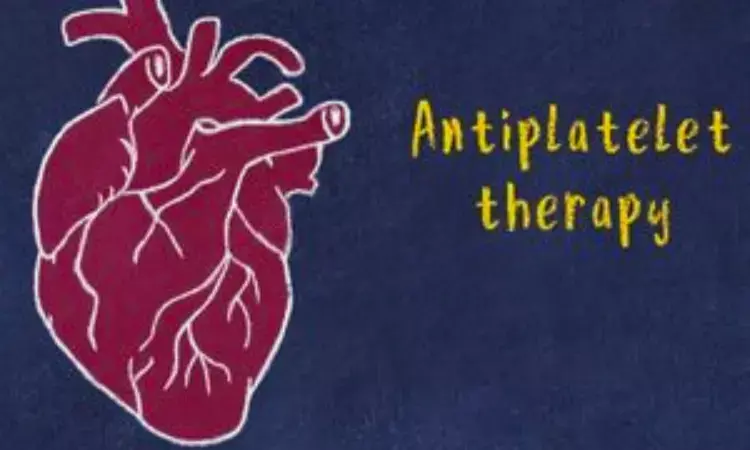- Home
- Medical news & Guidelines
- Anesthesiology
- Cardiology and CTVS
- Critical Care
- Dentistry
- Dermatology
- Diabetes and Endocrinology
- ENT
- Gastroenterology
- Medicine
- Nephrology
- Neurology
- Obstretics-Gynaecology
- Oncology
- Ophthalmology
- Orthopaedics
- Pediatrics-Neonatology
- Psychiatry
- Pulmonology
- Radiology
- Surgery
- Urology
- Laboratory Medicine
- Diet
- Nursing
- Paramedical
- Physiotherapy
- Health news
- Fact Check
- Bone Health Fact Check
- Brain Health Fact Check
- Cancer Related Fact Check
- Child Care Fact Check
- Dental and oral health fact check
- Diabetes and metabolic health fact check
- Diet and Nutrition Fact Check
- Eye and ENT Care Fact Check
- Fitness fact check
- Gut health fact check
- Heart health fact check
- Kidney health fact check
- Medical education fact check
- Men's health fact check
- Respiratory fact check
- Skin and hair care fact check
- Vaccine and Immunization fact check
- Women's health fact check
- AYUSH
- State News
- Andaman and Nicobar Islands
- Andhra Pradesh
- Arunachal Pradesh
- Assam
- Bihar
- Chandigarh
- Chattisgarh
- Dadra and Nagar Haveli
- Daman and Diu
- Delhi
- Goa
- Gujarat
- Haryana
- Himachal Pradesh
- Jammu & Kashmir
- Jharkhand
- Karnataka
- Kerala
- Ladakh
- Lakshadweep
- Madhya Pradesh
- Maharashtra
- Manipur
- Meghalaya
- Mizoram
- Nagaland
- Odisha
- Puducherry
- Punjab
- Rajasthan
- Sikkim
- Tamil Nadu
- Telangana
- Tripura
- Uttar Pradesh
- Uttrakhand
- West Bengal
- Medical Education
- Industry
JAMA: Clopidogrel monotherapy more Effective Than Aspirin in Reducing Risks Following complex PCI

A new analysis of the multicenter HOST-EXAM Extended study provided critical insights into the optimal antiplatelet therapy for patients at high bleeding risk (HBR) or the individuals undergoing complex percutaneous coronary intervention (PCI). The findings published in the demonstrate that clopidogrel monotherapy consistently outperforms aspirin in reducing both thrombotic and bleeding events during the chronic maintenance period after PCI.
This study was conducted in South Korea and analyzed data from 3,974 patients who underwent PCI and remained event-free for 6 to 18 months while on dual antiplatelet therapy (DAPT). The participants were enrolled between 2014 and 2018 and were randomized to receive either clopidogrel or aspirin in a 1:1 ratio. This research focused on patients with HBR or complex PCI to evaluate the comparative efficacy and safety of the two therapies.
The patient population, with a mean age of 63.4 years and predominantly male (74.9%), included 866 individuals with HBR (21.8%) and 849 who underwent complex PCI (21.4%). The analysis found that clopidogrel provided superior protection against thrombotic events and bleeding when compared to aspirin, regardless of a patient’s HBR or PCI complexity status.
For thrombotic outcomes, clopidogrel demonstrated a hazard ratio (HR) of 0.75 among patients with HBR and 0.62 among the patients without HBR. Also, among patients undergoing complex PCI, clopidogrel's HR was 0.49, compared to 0.74 in non-complex PCI patients. These reductions in thrombotic events underline the consistent efficacy of clopidogrel across various patient profiles.
Bleeding outcomes also favored clopidogrel. The patients with HBR who received clopidogrel had an HR of 0.82, while the ones without HBR had an HR of 0.58. For complex PCI patients, the HR was 0.79, when compared to 0.68 in the non-complex PCI group. The HOST-EXAM Extended study confirms that clopidogrel monotherapy is a safer and more effective alternative to aspirin for patients who have stabilized after PCI, regardless of their bleeding risk or procedural complexity.
These evidence could prompt a reevaluation of current clinical practices and guidelines, particularly for high-risk groups. Overall, these findings solidify clopidogrel's role as the preferred single-agent antiplatelet therapy, especially in patients seeking to minimize bleeding risks without compromising protection against thrombotic events.
Source:
Kang, J., Chung, J., Park, K. W., Bae, J.-W., Lee, H., Hwang, D., Yang, H.-M., Han, K.-R., Moon, K.-W., Kim, U., Rhee, M.-Y., Kim, D.-I., Kim, S.-Y., Lee, S.-Y., Lee, S. U., Kim, S.-W., Kim, S. Y., Han, J.-K., Shin, E.-S., … Kim, H.-S. (2024). Long-Term Aspirin vs Clopidogrel After Coronary Stenting by Bleeding Risk and Procedural Complexity. In JAMA Cardiology. American Medical Association (AMA). https://doi.org/10.1001/jamacardio.2024.4030
Neuroscience Masters graduate
Jacinthlyn Sylvia, a Neuroscience Master's graduate from Chennai has worked extensively in deciphering the neurobiology of cognition and motor control in aging. She also has spread-out exposure to Neurosurgery from her Bachelor’s. She is currently involved in active Neuro-Oncology research. She is an upcoming neuroscientist with a fiery passion for writing. Her news cover at Medical Dialogues feature recent discoveries and updates from the healthcare and biomedical research fields. She can be reached at editorial@medicaldialogues.in
Dr Kamal Kant Kohli-MBBS, DTCD- a chest specialist with more than 30 years of practice and a flair for writing clinical articles, Dr Kamal Kant Kohli joined Medical Dialogues as a Chief Editor of Medical News. Besides writing articles, as an editor, he proofreads and verifies all the medical content published on Medical Dialogues including those coming from journals, studies,medical conferences,guidelines etc. Email: drkohli@medicaldialogues.in. Contact no. 011-43720751


